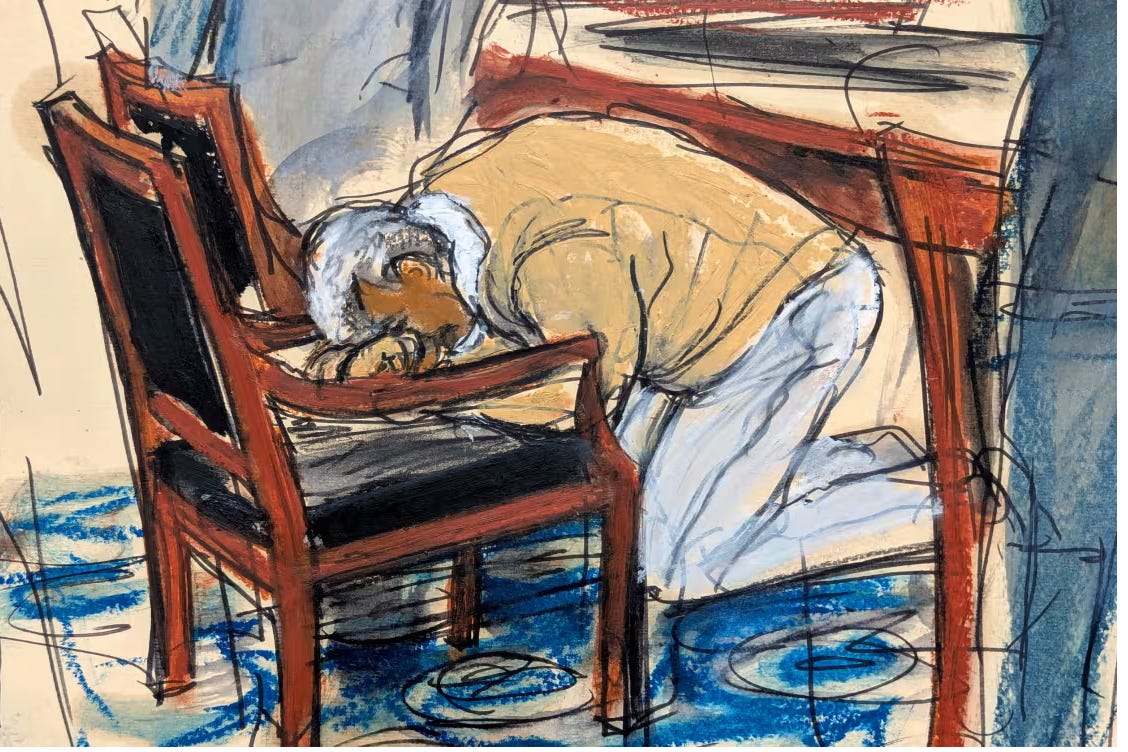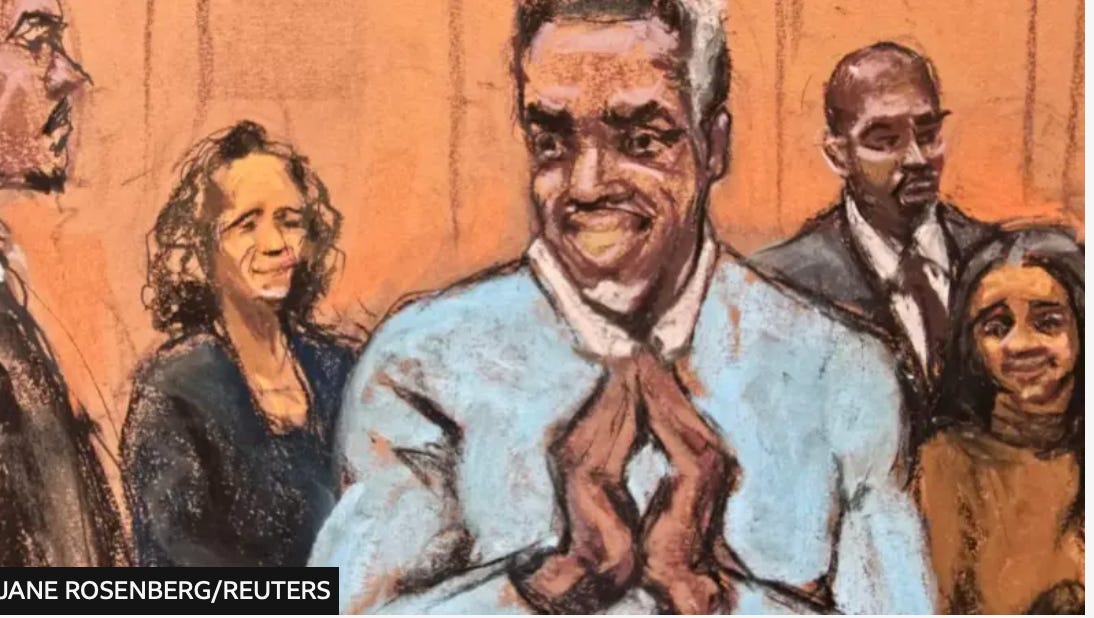The Southern District Just Lost a Big Case
What the Sean Combs verdict reveals about prosecutorial overreach, and why it could matter for Luigi Mangione.
I believe Sean Diddy Combs should be in jail for decades. I want to make that clear up front.
That said, today’s verdict, which acquitted him of racketeering conspiracy and sex‑trafficking charges, can be seen as a sign that the Southern District of New York (SDNY) couldn’t carry its case, even with the help of the NYPD.
The prosecution decided on very serious charges (racketeering, sex trafficking), but the jury wasn’t convinced. They heard 34 witnesses over six weeks, deliberated for two to three days, and ultimately convicted Combs on only two misdemeanor counts of transportation for prostitution under the Mann Act, charges that carry far lighter penalties.

.
It’s worth noting that the charges against Combs were brought by a Biden-era prosecutorial team that, at the time, likely believed they could meet the standard of proof for the charges brought forward. But let’s remember that by the time the case went to trial earlier this year, SDNY had been gutted by a wave of politically motivated resignations and firings.
Once among the nation’s elite prosecutors, its ranks have thinned under the Trump administration. The team that built the case isn’t the same one that had to argue it. Did this play a role in why the prosecution failed in its objectives? I think it’s indisputable that losing a high-stakes, high-visibility case like this suggests that the departure of experienced prosecutors has an impact.
Today’s result shows that New York juries won’t convict on rhetoric alone: they demand clear, provable evidence that links an individual to criminal acts beyond a reasonable doubt. In other words, the charges have to fit the crime. Trying to make the crime fit the charges won’t work in New York.
Sound familiar? It might, if you think the stalking charges brought forth by the SDNY in the Luigi Mangione case is an overreach. And the SDNY has just publicly demonstrated that overreach can backfire. If they repeat that strategy in the Mangione case, they risk another jury rejecting their framing.
If I’m on Mangione’s defense team, the Combs verdict would probably be the best news I’ve had in months. Not because the charges are comparable (they really aren’t), but because the Combs case showed that SDNY prosecutors, even when armed with serious charges and public momentum, are very capable of stumbling at trial.
We can conclude that the jury didn’t buy the government's overarching narrative about Combs’ crimes. That may be because in New York courtrooms, storytelling isn't enough. You need tight, disciplined casework. Evidence matters. Rhetoric is cheap. New Yorkers are too hard-bitten, too jaundiced, to be taken in by flowery speeches.

The Mangione prosecution leans heavily on symbolic framing, seen in the terrorism enhancement, the use of political language, the mentions of “ideology” and “domestic extremism.” If SDNY again fails to translate their narrative into evidence sufficient for a New York jury, then the door is open for them to say, nah, not good enough. And if the defense argues that the charges are overreaching or improperly stacked, you may see a repeat of the Combs’ verdict.
If I’m someone hoping to see Mangione convicted and put to death (seems most of these folks are concentrated in the same Washington D.C. zip code), then the Combs verdicts are a troubling development. If the strongest prosecutors available couldn’t secure convictions in a well-resourced, months-long trial against a notorious defendant, what does that say about the the SDNY’s capacity to deliver justice in a case as complex and politically loaded as this one? In a case in which the defendant is not universally reviled as Combs is, but is, in many quarters, a folk hero?
For those who see Mangione as a symbol of resistance or moral clarity, the Combs verdict may be read as a sign that the system, at least in some instances, still demands real proof. Not headlines, not ideology, but evidence.





So glad to see you're back! :) I was surprised at the Diddy verdict - he's an absolutely disgusting human being and the verdict just shows how so much about abuse and its psychological effects on women (and men for that matter) are still not understood. From my understanding, RICO cases are difficult to prove. The Georgia RICO case against Young Thug went much the same way, and was an expensive and lengthy trial. If what you say is true about New Yorkers and trials, it will be interesting to see how the state case goes if all of the backpack evidence is suppressed. Because regardless of what I see in the media, I'm not sending a 27-year-old Ivy League grad who has spent his time in prison writing thankful letters to supporters and has no criminal record or history of violence to prison for decades based off grainy CCTV images and a partial fingerprint. (The gum DNA, if not suppressed, would be trickier.) I think this is potentially the reason for the constant delays with regards to an indictment on the federal case....I don't think they can prove stalking, and if they can't prove stalking, the murder charge is out. The government (and the lobbyists and millionaires that control it) way overplayed their hand here. Granted, without a defense team as impressive at Agnifilo Intrater, a more working-class defendant with a public defender might not have been able to navigate these charges and would have potentially cut a plea deal just to make it go away. I know Luigi's defense fund has raised over a million dollars, but that's a fraction of what these cases will likely end up costing him and his family. Luigi may be considered a folk hero, but he still comes from wealth, and we all know money buys you the best defense out there.